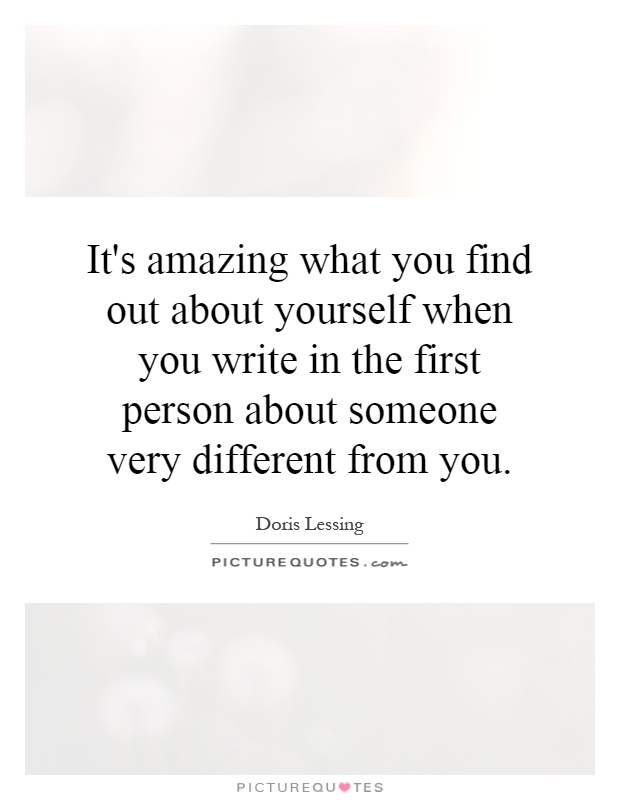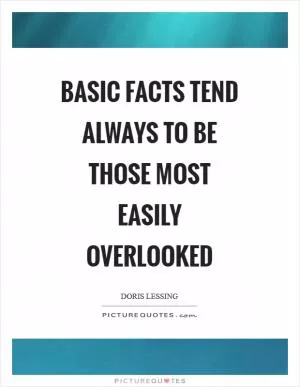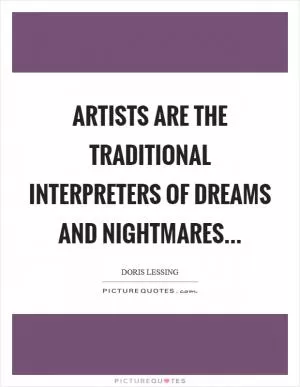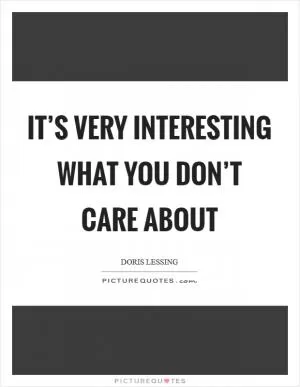It's amazing what you find out about yourself when you write in the first person about someone very different from you

It's amazing what you find out about yourself when you write in the first person about someone very different from you
Doris Lessing, a prolific and influential writer, once said, "It's amazing what you find out about yourself when you write in the first person about someone very different from you." This statement encapsulates the power of empathy and imagination in the act of writing, as well as the transformative potential of stepping outside of one's own perspective.Lessing was known for her ability to inhabit the minds and experiences of characters who were vastly different from herself. Through her writing, she explored themes of race, gender, class, and politics, delving into the complexities of human nature and society. By adopting the first-person perspective of these diverse characters, Lessing was able to delve deep into their inner worlds, motivations, and struggles, allowing her readers to gain a deeper understanding of the human condition.
In writing from the perspective of someone very different from oneself, one is forced to confront their own biases, assumptions, and limitations. It requires a willingness to step outside of one's comfort zone, to imagine the world through the eyes of another, and to empathize with experiences that may be vastly different from one's own. This act of imaginative empathy can be both challenging and rewarding, as it allows the writer to expand their understanding of the world and themselves.
For Lessing, writing in the first person about someone very different from herself was a way to explore the complexities of human identity and relationships. It allowed her to challenge societal norms and conventions, to question the status quo, and to push the boundaries of her own creativity. By inhabiting the minds of characters who were marginalized, oppressed, or misunderstood, Lessing was able to give voice to those who were often silenced or overlooked in mainstream literature.












 Friendship Quotes
Friendship Quotes Love Quotes
Love Quotes Life Quotes
Life Quotes Funny Quotes
Funny Quotes Motivational Quotes
Motivational Quotes Inspirational Quotes
Inspirational Quotes